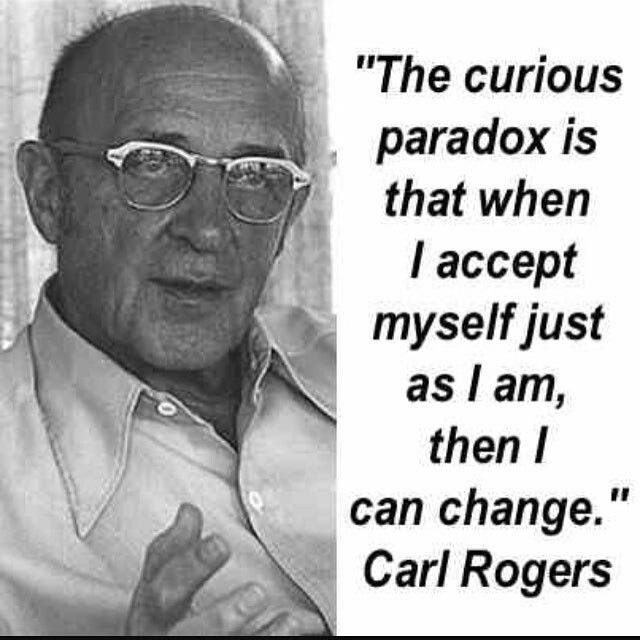Wisdom from the Worst
A Train Molester Changed How I Look at Self-Esteem. I guess everyone IS a guru if you're willing to listen.
On a crispy winter morning, my husband and I made our way to the Strand Book Store near Union Square. The city was full of tourists, and about a quarter of them seemed crammed into this bookstore. We had just moved into a sublet in the East Village after a falling out with someone we thought was a close friend. A NYC rite of passage, no? I’m glad I purged myself of said instrumentalist, manipulative friendship sooner rather than later. In hindsight, crossing paths was important because they mirrored the way I’d long treated myself: conditionally.
I was looking for a book—I don’t remember which—but I didn’t find it. I ended up on the bottom floor, which, in classic NYC fashion, was 30 degrees Celsius despite it being 2 degrees outside. One of the city’s many charms.
I wandered to the Philosophy section, which, naturally, was lumped in with self-help, religion, spirituality, and foreign languages (because of course these things can’t exist without one another…). That’s when a butter-yellow book caught my eye. Did I subconsciously anticipate 2025’s butter-yellow fashion trend? Probably. My mom and I have a sixth sense for these things.
But it wasn’t the color. It was the title: The Myth of Self-Esteem by Albert Ellis. That was enough to make me buy it. Self-esteem has always been an elusive and ever-changing concept for me. What woman would resist the opportunity of a man telling her why she has none!
Jokes aside, I took it home and read it in a day. Funnily enough, it marked a before-and-after in the way I think about self-esteem.
A Man of Big Ideas—and Even Bigger Red Flags
Albert Ellis was a man of groundbreaking ideas—and even bigger red flags. In his autobiography All Out!, he openly admits to publicly pleasuring himself by rubbing against women in crowded subways and buses when he was a teenager. Of course he went on to become a psychologist. It’s the most on-brand psychologist origin story I’ve ever heard!
You can imagine my disappointment when I found out. Still, I found the teaching of his book profound. Ironically, the book itself showed me that I could extract its wisdom while disapproving of Albert’s behavior. And I did.
Ellis was the father of Rational Emotive Behavior Therapy (REBT), the philosophical backbone of the more popular Cognitive Behavioral Therapy (CBT).
The thesis: Most people don’t actually have self-esteem. We have conditional self-esteem.
We like ourselves when we’re “good,” and loathe ourselves the moment things don’t go according to plan. If you only feel good when you’re optimized—doing yoga, eating clean, meditating, weighing a certain amount—but then feel worthless when you dare binge-drink or skip a scheduled gym session, I hate to break it to you: you don’t have self-esteem, you have a rating system.
The Scam of Conditional Self-Esteem
You have to accept yourself—even if you’re fat, ugly, lazy, broke, or loud. And not in a toxic-positivity way. You don’t need to believe you’re secretly a hot, rich genius. You just have to stop thinking those labels change your worth.
Ellis says it’s irrational to rate your entire self based on isolated behaviors. You can, and should, evaluate your actions—but the self remains worthy regardless.
Difficult? Absolutely. He says it takes years of practice and self-monitoring to silence that cruel inner narrator who insists you're only as good as your latest achievement.
Even more surprising, he also warns against over-celebrating your wins. Ellis draws a sharp distinction between saying, “That was a helpful behavior,” and “I’m a good person because I did that.” The first is rational. The second is ego-inflation—and fragile. Because once your behavior changes (and it will), the inflated self-image crashes.
In Ellis’s terms:
“That was a productive behavior” = ✔️
“I’m proud because I’m being good today” = Slippery slope
“I’m lovable because I did that” = Conditional self-esteem
He coined the term musturbation to describe our irrational, rigid beliefs: “I must do this,” “They must treat me that way,” “Life must go my way.” These thoughts create guilt, anxiety, and shame. As the ancient proverb states: “Shoulda, woulda, coulda!”
A Liberated Self, Not a Cured One
After reading this book, it struck me that I wasn’t just rating myself—I was also tolerating relationships that rated me. When you live in a constant cycle of proving your worth to yourself, you’ll naturally attract (and accept) people who expect you to keep proving it to them, too. And the worst part? You’ll expect that of them as well. We’re all mirrors, after all.
So yes, your actions should align with the life you say you want. That means judging them. But here’s the trick: you can evaluate your behavior in terms of whether it moves you closer to your goals—without attaching a moral judgment to your entire identity. Those are two very different things.
Here’s the practice: when rating your actions, ask yourself, “Does this bring me closer to the life I want?” That’s it. You can reflect with clarity, without spiraling into self-hate or delusion.
And just like that, my self-esteem wasn’t “cured”—but it was liberated.
The Line That Changed My Life
After digesting Ellis’s teachings, I picked up a piece of paper and drew an image. On the right: a drawing of Me. Perfectly flawed. Untouchable.
On the left: my actions, behaviors, habits. Fair game.
I drew a line between the two, and my dynamic with myself was forever changed.
That separation gave me something priceless: objectivity. I could say, “That was unhelpful,” without feeling angst or disgust. I could love myself and still want growth.
It also made me understand that first friendship fallout in the city. Conditional self-esteem looks like this: it flatters when it benefits, abandons when it’s inconvenient, and resents anything that challenges it. That was them—but it was also me. I had tolerated those conditions because they mirrored my own self-treatment. In the end, it was all positive: I let a friend go, and I let a form of self-punishment go too.
So…Albert Ellis, the man who touched himself in public, gave me a gift: an untouchable self. And a line that not only separated me from my actions, but from conditional love.




